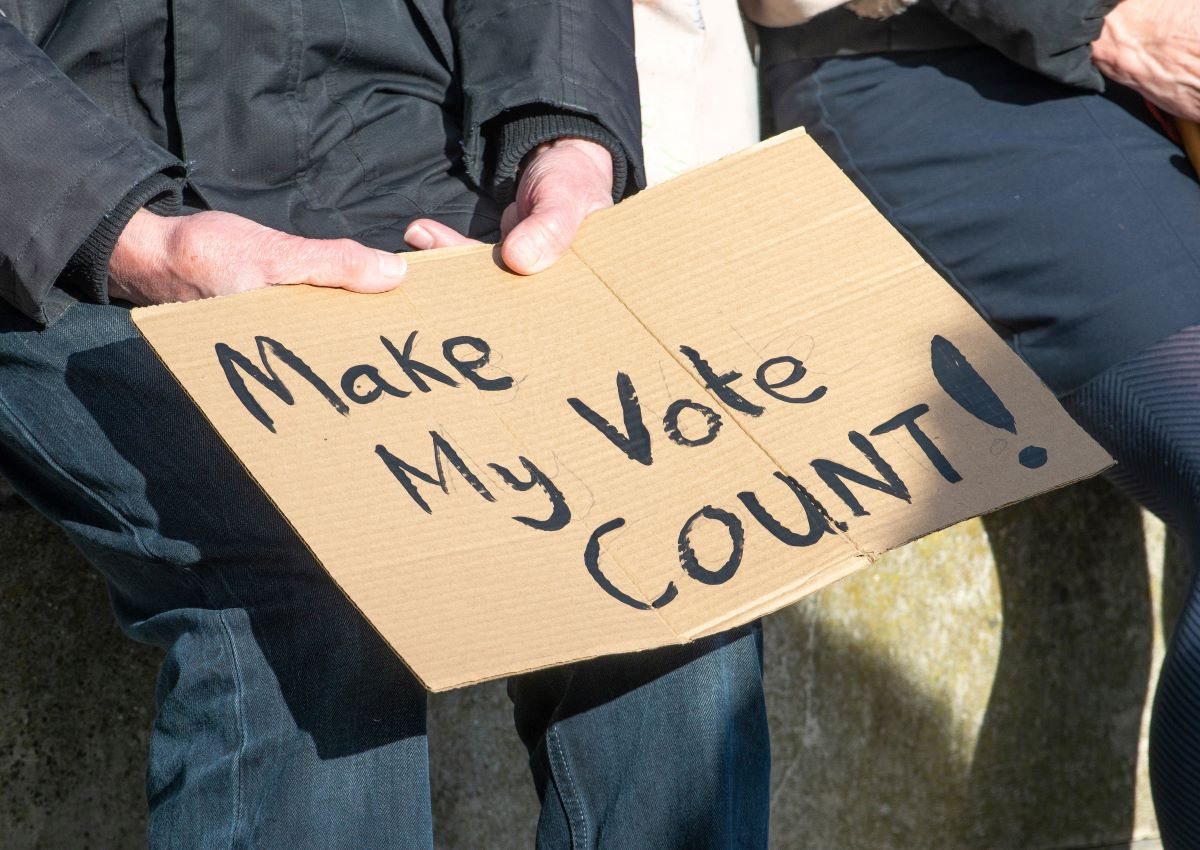“Do people have any idea what’s going on here?”
That was my thought upon entering a crowded civil courtroom dedicated to evictions. Squeezing past several families, crying babies, couples, and disabled individuals, I found a little space in the back to sit on the floor. I was there for approximately 9 hours.
I did the same thing every month, requesting an adjournment after continuous neglected repairs, damage, and harassment from our slumlord. This process, slowly but surely, led to me becoming homeless in my 20s and spending the next year jumping from homeless shelter to homeless shelter in New York City.
At this point in my life, with all my naivety, I couldn’t believe any of it was real. Why was this allowed to happen? Why didn’t we hear more about this homeless epidemic from politicians, political figures, or anywhere else?
Sure, there is a lot of discussion on various other political issues, such as gun control, climate change, healthcare, and even LGBTQ+ issues. However, the discussion of homelessness is often tucked away or not acknowledged at all.
There are a few reasons for that. To address homelessness would require addressing wealth inequality, student debt, the minimum wage, lack of affordable housing, and rent control. These are all side effects of capitalism. Most importantly, they all contribute to the homeless epidemic.
Additionally, most individuals believe homelessness could never happen to them, but nothing could be further from the truth.
As the saying goes, you have significantly more in common with a homeless person than a millionaire. Furthermore, you’re significantly more likely to become homeless than you are to become rich. We are all a part of the 99%, after all.
Misinformation is another big issue when educating the public about homelessness.
For example, we might see how New York City invests millions into tackling the city’s homeless epidemic, but beyond that? There isn’t much.
This is precisely why Invisible People is so important. The media currently reaching the majority of the public doesn’t accurately represent the issues of homelessness. Instead, it poorly represents homelessness and is often false, offensive, and dangerous. PragerU is an excellent example of this.
What’s even scarier? PragerU has launched K-12 curriculum work and various other education materials for children. Florida’s Department of Education approved using the PragerU Kids curriculum in public K-12 schools, so this misinformation is also being shared with our youth. That hurts everyone involved.
Because of this, I am always on the lookout for content accurately discussing homelessness, especially in far-reaching social media or publicly advocated by politicians.
As you can imagine, this is a complex task. Without sounding terrible, people write, talk, and create content about what they believe is relevant and important. And the general public doesn’t care about homelessness. If we did, there would be so much to talk about.
The question is: How do we get people to care about homelessness?
I was taught to care, and it is my responsibility to care, especially when no one else will. Of course, not everyone shares my upbringing and history, so I head to YouTube.
Last week, I was browsing my YouTube feed when I found this interview with Maebe A. Girl, a politician running for Congress in 2024. Maebe also happens to be a trans drag queen.
In the interview, she briefly discusses homelessness. I was not only intrigued with having someone represent the LGBTQ+ community in Congress but also someone who shared a lot of my values and thoughts on poverty and homelessness.
Frankly, I feel discouraged when observing political discussions online. Simply put, it’s often quite terrible, and I’m not even considering the amount of hate comments I’ve seen at the bottom of my articles.
I find it upsetting that the lives of homeless people can be debated and thought of as simply a talking point. Even as a formerly homeless person, I don’t think of myself as someone with significant authority on homelessness. I will always encourage you to examine it against other homeless people’s thoughts and experiences and read more content from current or formerly homeless individuals on Invisible People.
That said, back to Maebe. Although I’d love to request an interview or even a short discussion with her in the future, I was impressed by her knowledge and involvement with the homeless epidemic in LA.
On her site, she shares her thoughts on homeless issues:
Alleviating homelessness is important to me because it disproportionately affects people of color and LGBTQIA people, and 40% of homeless youth identify as LGBTQIA!
As your Congressional representative, I will work to make sure we effectively and compassionately address homelessness in LA County and nationwide.
This means advocating for ending the traumatic CARE+ sweeps in Los Angeles, increasing services, and getting people into permanent housing. This means speaking out and legislating against the criminalization of poverty. We must build more permanent supportive housing and emergency shelters and end the cycle of homelessness through a compassionate, housing-and-services-first approach.
What pains me is that homelessness does not come with a lot of accurate or compassionate representation. Because of this, it’s essential to seek out political figures who do. I am curious and hopeful to see more of what Maebe will share.











